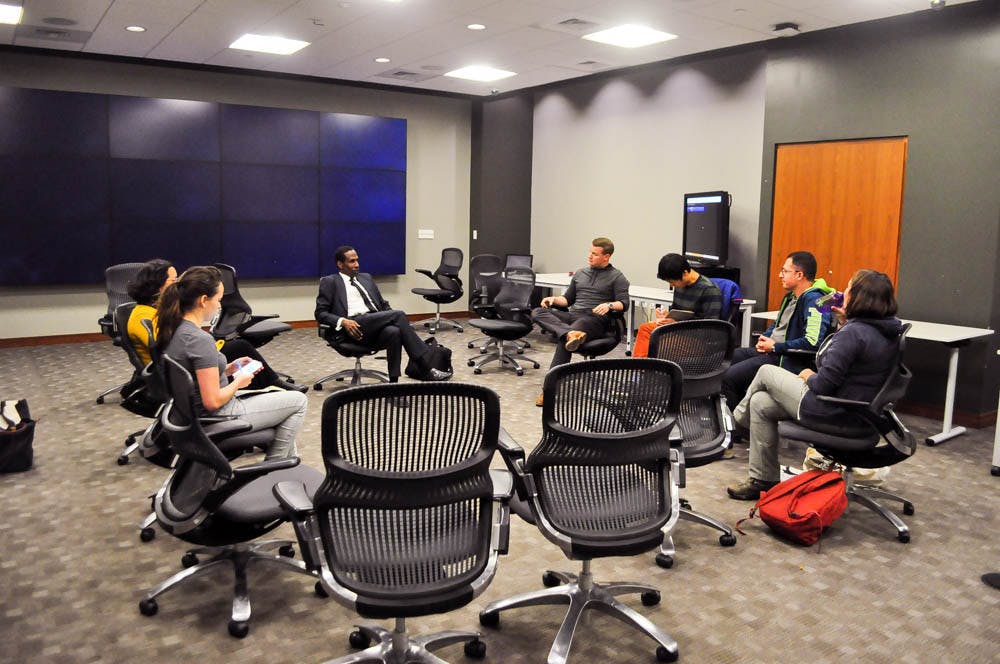Graduate students raised several concerns over lack of community, an insignificant role in faculty hiring and few avenues for student feedback on advisors over the course of four student input sessions in September. Andrew Campbell, the new dean of the Graduate School, held these feedback sessions to gather input from the grad student community.
“At the department level, (faculty members) are so very concerned with Brown’s image and reputation as being a wonderful place for undergraduates,” said one graduate student. The student added that she receives very little support from faculty members because “they feel pressure from the University at large to specifically cater to the undergraduate audience to the detriment of the graduate students.”
The newest associate dean of student support at the Graduate School, Maria Suarez, was also in attendance at the final session. Suarez, whose position was created this summer, said her goal is to eliminate the notion that “graduate students are either stepchildren or second-class citizens” at Brown.
Graduate students “drive (the University’s) reputation 100 percent as much as the undergrads do,” Suarez said. “Our reputation as an institution relies on you guys.”
Students said the mechanisms in place for providing feedback on advisors are insufficient. They explained that a difficult relationship with an advisor could lead to serious barriers to completing their degrees. In contrast, undergraduates can switch advisors after their first year and fill out required course review surveys at the end of each semester.
In terms of faculty hiring and tenure, graduate students said that while they spend the most time with faculty members, they do not have the opportunity to weigh in on these processes.
When faculty candidates visit campus, students have “the opportunity to meet with the prospective faculty formally to discuss their work … (and) are often asked for their assessment of the candidates by the search committee,” Campbell wrote in an email to The Herald.
Another concern raised at the input session was that international students do not receive enough support for the unique challenges they face. Thirty-eight percent of graduate students are international students, and international students account for 40 percent of this year’s incoming class. Some challenges for international students may include a language barrier and acquiring visas for them and dependents, Campbell said at the session.
“Financially, life can get hard,” said one international graduate student from Canada whose wife moved with him to Providence. While graduate students receive F1 visas that enable them to be paid by the University, spouses receive F2 visas, which do not enable them to be gainfully employed. “We had times we could not afford health insurance, even with Obamacare,” the student said.
On the topic of community building, Taka Kanaya GS said, “Foremost, we need a place to gather to nurture camaraderie,” adding that the Universiy is “a little behind in terms of grad student activities” compared to other institutions with which he has experience
The process of fostering a strong grad school community across disciplines needs to start at the department level, Suarez said, adding that she is currently meeting with the heads of each department to work toward this goal.
Another issue raised concerning student life was that, while the Student Activities Office encompasses graduate students, undergraduate leaders of clubs do not always adhere to this policy. Graduate students are faced with obstacles in joining on-campus clubs, said one graduate student. “I tried to find a co-op, or I tried to live in West House or find some sort of community to grab onto not knowing anyone here,” but was consistently met with “‘no, this is for undergraduates only,’” she said.
Campbell hopes “to build deeper connections between graduate students and other student groups,” he wrote. The College, the Grad School and Campus Life need to continue working together to meet “the need to build community, collaborative relationships and mentoring relationships,” Campbell wrote.





